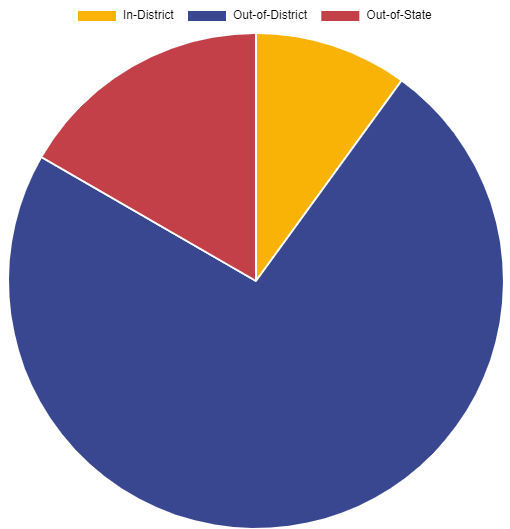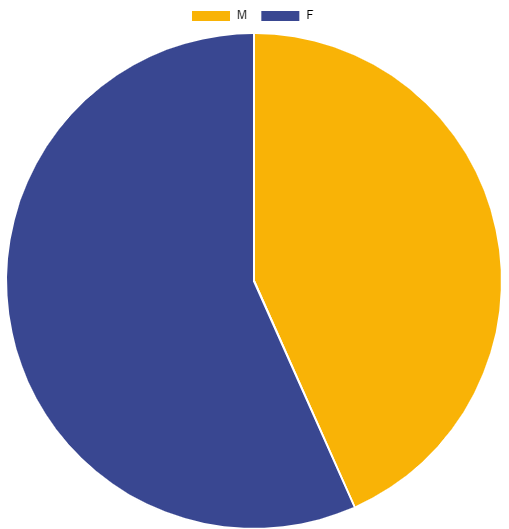Message to the Community
South Suburban College (SSC) acknowledges the value and contributions of its faculty and staff in fostering a culture of academic success and community service. The College remains steadfast in its commitment to resolving the ongoing labor negotiations with Local 1600 in a manner that upholds its mission and reflects the best interests of all stakeholders, including students, faculty, staff, and the taxpaying members of our community.
As you may be aware, South Suburban College received an official 10-day notice of intent to strike on Friday, November 15, 2024, from the Faculty Association. Our students’ education is our primary responsibility at South Suburban College. We remain focused on maintaining the highest level of support and academic excellence for our students while ensuring effective operations and services. SSC values the vital role our faculty play in delivering quality education, and we are committed to providing a professional environment that reflects the importance of their contributions.
As discussions with the SSCFA chapter of Local 1600 continue, we want to outline the terms we have proposed and highlight the impact a potential work stoppage could have on our faculty, students, and on our college community.
CURRENT CONTRACT PROPOSALS
SSC is dedicated to offering competitive compensation to attract and retain our faculty.
- The current base salary offer includes an average increase of 26.8% over the next four years. The proposal includes individual base salary increases for faculty ranging from 18.7% to 41.8% over the four years. Please see the Administrative Salary Proposal, which includes the salary calculations for each faculty for each of the next four years, with the four-year snapshot.
- Both the starting pay rate schedules for overload and summer increase by 34%, with most faculty receiving an increase of 21% from $807.93 to $978 per CHE on the overload schedule
Embracing the new salary schedule proposed by the union, the administration’s proposal includes an increase of 21% in the salary schedule in year one of the contract and 35% over the four years. While this is significant progress to the schedule, we realize that there is still work to be done. However, the administration could not increase the starting salary schedule for a new faculty with a master’s degree to $51,000 without current faculty receiving significant increases because all faculty sit on the same salary schedule. These increases would not be financially sustainable for the college and would result in an adverse impact on day-to-day operations and ensuring the future vitality of the college. We recognize that there remain challenges to the salary schedule, these challenges happened incrementally and cannot be fully resolved in this one contract year. However, this administration remains committed to working collaboratively with faculty to improve our ability to recruit and retain new faculty and ensure that the current faculty salaries stay on par with peer institutions. We are confident that this proposal lays the framework for this continued work.
Other highlights of the administration’s proposal include:
- $14,800 in flex dollars and an annual increase of $400 each year, which fully covers the medical insurance costs for an individual faculty;
- 4 weeks of paid paternal leave and 2 additional bereavement days;
- 51% increase in tuition reimbursement and doubled the annual increase thereafter. Expansion of this category includes professional development reimbursement for the maintenance of professional licensure;
- 40% increase in development funds for Department Chairs;
- 25% increase in substitute pay;
- 12.5% increase for the development of new online classes;
- Reduced the class size of ALL developmental classes from 24 to 20;
- Extended virtual office hours from 2 hours to 3 hours;
We are committed to creating a supportive environment where faculty members feel valued and respected. This is the most comprehensive and financially generous contract in at least two decades that also includes the continuation of a generous 5-year retirement incentive plan for those with 10 or more years of service. The plan provides faculty 20% of their base pay for 5 years at retirement.
WHAT FACULTY LOSE IN A WORK STOPPAGE
If faculty choose not to work during a strike, they forfeit their pay and do not accrue any leave time nor SURs credit. Paid leave benefits will not be approved for striking employees. No other leave of absence with or without pay will be granted for any bargaining unit members during the strike. Faculty will also forfeit their health insurance and life insurance benefits during the work stoppage.
WHAT SSC LOSES IN A WORK STOPPAGE
Work stoppages create significant disruptions to our academic mission. A strike could reduce the number of students served, delay class schedules, negatively impact degree and certificate completion, and potentially affect public perception of the college. These impacts may hinder our ability to secure funding to grow SSC’s programs and resources for students.
WHAT SSC STUDENTS LOSE IN A WORK STOPPAGE
Work stoppage could have detrimental effects on our students, potentially disrupting their ability to complete the fall semester as planned. Such a situation could delay academic progress and enrollment, leaving students unable to fulfill the requirements needed for certification, graduation, or transfer to other institutions. These delays could also hinder their entry into the workforce advancement in their respective fields. A stoppage could also affect the eligibility of student-athletes.
CONSIDERATIONS AS YOU WEIGH A POTENTIAL STRIKE
SSC recognizes the role of unions to advocate for their members and acknowledges the right to strike. SSC also recognizes the right of union members to choose not to participate in a strike. We encourage you to weigh all the information, including the potential impact on you and your family, our students, and SSC as a whole.
SSC’S COMMITMENT TO REACHING A POSITIVE RESOLUTION
South Suburban College is committed to working collaboratively to reach a fair and constructive agreement that supports our faculty and students. Our goal is to avoid a work stoppage and ensure an uninterrupted learning experience for all. We are unwavering in our dedication to open dialogue and finding a solution that reflects our shared commitment to student success, community, and educational excellence
A dedicated email, strikequestions@ssc.edu, will be available for inquiries. Please allow 24-48 business hours to receive a response. Thank you for all you do for SSC and for your dedication to our students. Your role is vital to their success and to SSC’s mission. Together we will be better and stronger in the future!
SSC Faculty Salary and Demographic Data
The salary distribution among SSC faculty highlights a range of compensation levels that reflect academic qualifications, tenure, and departmental roles. Faculty salaries, in addition to the demographics discussed, offer insight into faculty distribution across pay scales, residency, race/ethnicity, gender, and education level.
Current Salary Breakdown

Residency
The majority of SSC faculty live outside the district (73.3%), with only 10% residing within the district.

Race/Ethnicity
The faculty’s racial and ethnic breakdown includes 50% White, 33.3% African American/Black, 5% Asian, 3.3% Hispanic, and 5% of two or more races, with 3.3% in the unknown category.

Gender
The gender distribution leans slightly toward female faculty, who make up 56.67% of the total. Male faculty represent 43.33%.

Educational Qualifications
Over half of the faculty members (53.33%) possess a master’s degree, while 36.67% hold a terminal degree. Only 10% hold a bachelor’s degree or under.





